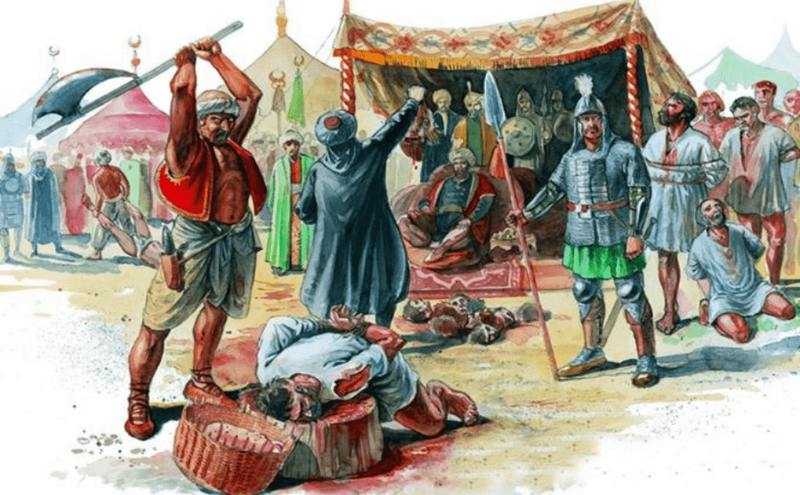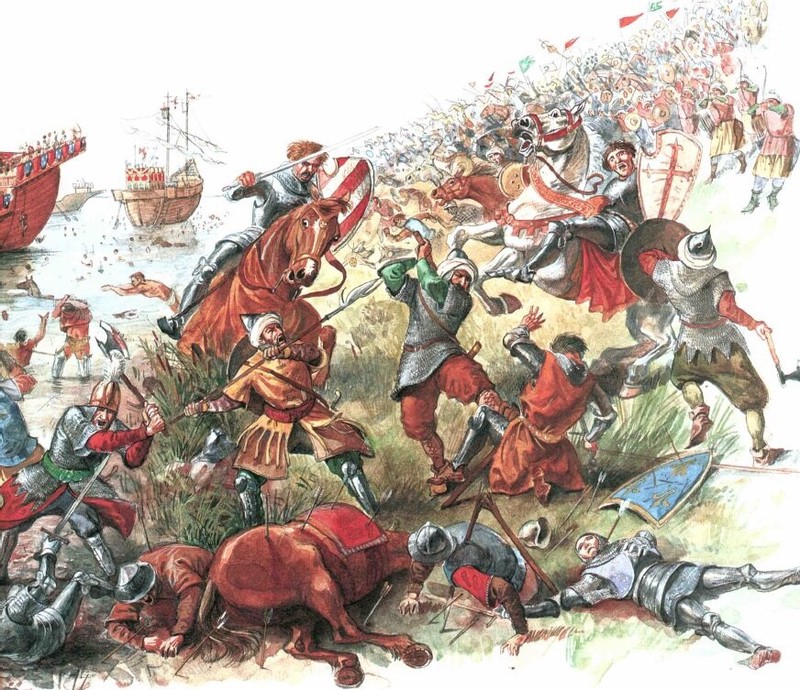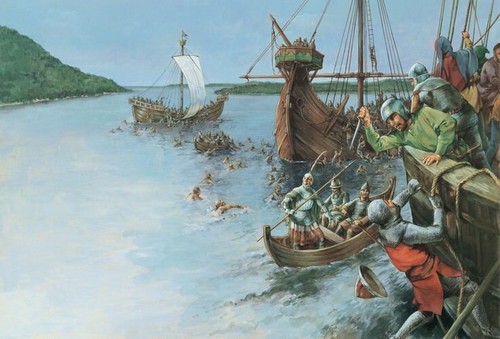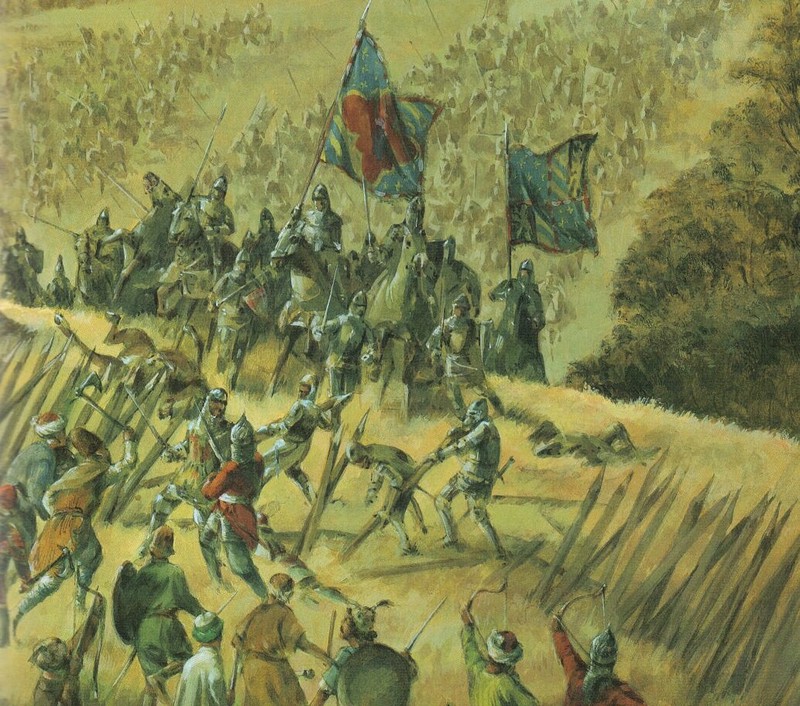
The Turkish sultan did not spare the arrogant knights and ordered the execution of the captured crusaders. Then it became clear to everyone that the era of the Crusades was long behind and it would not be possible to repeat their success...
In 1187, a battle took place at Hattin, which can be considered the beginning of the fall of the power of the crusaders in the East. Although, to be objective, it took the Saracens almost a century to finally clear the disputed lands from Christians. Only Constantinople remained, which was regularly attacked by Muslim lands. So far unsuccessful, but very exhausting. Christian forces were fading, and a new one was added to their former opponents - the Ottomans. Which very soon became a pan-European disaster. In addition, the practice of crusades somehow waned, and those who were closer to the pain points had to deal with the growing expansion. That is why the Balkans gradually turned into Turkish provinces. And it was impossible to organize resistance in any way - all potential participants pulled the blanket over to their side, trying to get the maximum dividends.

The church was the consolidating force. More precisely, one of the popes - Boniface IX, who in 1394 announced a new crusade against the infidels. But, to be honest, this statement did not turn out to be as resonant as the organizers would like - at that time, the bifurcation of the papal throne undermined the trust in the church, since the parishioners could not navigate the church squabbles and understand which of the popes and atipapes deserves attention and trust .
And yet the appeal of Boniface was heard. Firstly, because in Europe the crusade was then still considered a charitable and honorable deed. Secondly, because in Italy the most influential city-states (Genoa and Venice) risked being left without colonies due to the fault of non-Christians and generally shrank in trade affairs - the sales market threatened to shrink sharply. Thirdly, the Bulgarians had already lost part of the land, and for the Croats and Hungarians, the same prospect loomed. In a word, everyone responded - the German lands and France, England and Scotland, Bohemia and Poland, the Swiss Union and Portugal, knightly orders and many, many other participants. Only Flanders did not personally participate. But they gave money to Burgundy.

The trouble with the European knights was that they united, but they did not dare to take a common, unified command. As a result, at the most decisive moment, it turned out like in the famous fable about the swan, cancer and pike, but this is later. In the meantime, the joint command of the crusade was planning an operation many miles ahead - they decided to walk with an iron wedge through the once primordially Christian lands, knocking out the Muslims from there, then help Constantinople (it was besieged by the Ottoman army at that time), and even there to the Holy Land by hand submit. Since the ultimate goal proclaimed the liberation of the Holy Sepulcher. But the campaign was not well thought out. For example, they decided to organize the supply with the help of the river fleet, which was sailing along the Danube. This greatly simplified and cheapened logistics, but tied the combined forces to the river - the army could not move away from this transport artery for more than a day's march.

But worse than weak logistics was the command. Only the Hungarians had real experience of the war with the Turks, but no one really listened to their advice (extremely practical). And the knights from the German regions in general showed themselves to be an extremely arrogant and uncontrollable public. So the problems with the campaign began at the planning stage.
Interestingly, this colossus of people did not have siege equipment. Although they had sappers capable of digging under the walls. Because of the cities and castles that lay on the way, it was not possible to take everything. Mostly those whose garrison commanders sympathized with the Christians. And so they agreed to open the gate. Although some took it honestly, with a fight, and behaved there not quite like a Christian, slaughtering the supporters of Islam completely and with excessive cruelty. What caused the discontent of the Hungarians and Vlachs who participated in the campaign - nevertheless, among the victims were not only their fellow tribesmen, but also fellow believers. To which others did not even pay attention.
We arrived at Nikopol. In the hope that Sultan Bayezid I, nicknamed Lightning, will throw the siege of Constantinople and fight the crusaders. Those will defeat him in a general battle and then reach Jerusalem without any problems. Bayazid really came, leaving a very small army near Constantinople. True, on the way he still managed to recruit fighters. Including the troops of Moravian Serbia. So he did not come to the rendezvous point alone. And with an army that outnumbered the crusaders.
There are difficulties. Christian chronicles talk about 70,000 knights fighting against 200,000 Turks. Eastern chronicles say that 200 thousand knights came, and 20 thousand Turks fought against them. As a result, scientists, having calculated the possibilities of the surroundings of Nikopol, came to the conclusion that such a horde cannot be fed, nor on local roads.
Comments